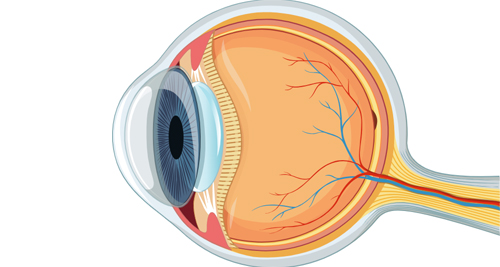Complications and Long-Term Outlook of Behçet’s Disease
Behçet’s disease varies greatly between individuals — some experience mild, manageable symptoms, while others face serious complications affecting the eyes, brain, or major blood vessels. The severity and pattern of symptoms often change over time. Read more about the complications and long-term outlook of Behçet’s disease below.
Potential complications include:
- Eye damage and vision loss
- Repeated episodes of uveitis or retinal inflammation can lead to permanent blindness if untreated.
- Repeated episodes of uveitis or retinal inflammation can lead to permanent blindness if untreated.
- Neurological Behçet’s
- Inflammation in the brain or spinal cord may cause headaches, confusion, weakness, or stroke-like symptoms.
- Inflammation in the brain or spinal cord may cause headaches, confusion, weakness, or stroke-like symptoms.
- Vascular problems
- Behçet’s can cause blood clots, aneurysms, or vessel ruptures, especially in large arteries or veins — sometimes requiring surgical intervention.
- Behçet’s can cause blood clots, aneurysms, or vessel ruptures, especially in large arteries or veins — sometimes requiring surgical intervention.
- Gastrointestinal symptoms
- Similar to Crohn’s disease, this may include abdominal pain, ulcers, and bleeding, especially in the small and large intestines.
- Similar to Crohn’s disease, this may include abdominal pain, ulcers, and bleeding, especially in the small and large intestines.
- Joint damage
- Recurrent arthritis can affect knees, ankles, and wrists, though it rarely causes long-term damage.
- Recurrent arthritis can affect knees, ankles, and wrists, though it rarely causes long-term damage.
- Emotional and mental health issues
- Chronic illness may lead to depression, anxiety, or social withdrawal, especially in young adults or those with disfiguring symptoms.
Prognosis:
- With proper treatment, many people live relatively normal lives.
- Vision loss and vascular disease are the most serious risks.
- Behçet’s may become less severe with age, especially after age 50.
In South Africa, long-term outcomes improve when patients have access to regular monitoring, multi-specialist care, and mental health support. Those without consistent access may experience more complications due to missed treatment or delayed diagnosis.
Complications and Long-Term Outlook of Behçet’s Disease
Raising awareness among healthcare providers and the public is key to improving outcomes. No one should suffer silently from a disease that, though rare, is manageable with the right care.
👉 [Next: Living with Behçet’s – Practical Advice and Support]


